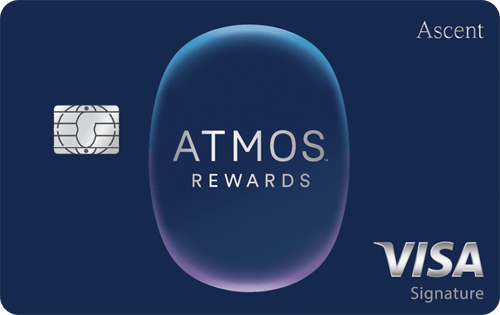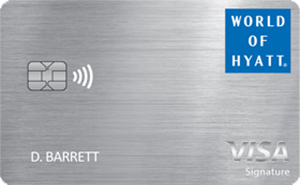Best Airline and Hotel Rewards Programs of 2026
Alaska Airlines and Hyatt each lead the way in airline and hotel loyalty programs for another year.

Many or all of the products on this page are from partners who compensate us when you click to or take an action on their website, but this does not influence our evaluations or ratings. Our opinions are our own.
Big airline and hotel brands want your loyalty, which is why they have programs that reward you with points or miles when you spend money with them. But understanding what these programs offer and how they compare to one another takes time and energy.
That’s where we come in.
NerdWallet’s travel team spent months collecting and analyzing data to determine the best travel loyalty programs of 2026. When looking for the best travel loyalty programs, we focused on rewards — specifically, how easy it was to earn them and how valuable they were.
For airline rewards programs, we looked at rewards rates, ability to earn miles, route network and qualitative factors. For hotel rewards programs, we looked at rewards rates, ability to earn points, global footprint and other qualitative factors. Here are the winners for 2026.
» Learn more: Check out all of our 2026 Best-Of winners.
Get the 'Cheat Codes' to Cheaper Travel
Unlocking the secret to saving a ton on travel is easier than you think. 📤 Our free newsletter shows you how in 5 min. or less.

Best airline rewards program: Alaska Airlines Atmos Rewards
For travelers who prioritize earning points and elite status, Atmos Rewards, the joint loyalty program between Alaska Airlines and Hawaiian Airlines, comes out on top — and not for the first time. It's been NerdWallet's top pick for Best Airline Rewards Program each year since 2020.
Atmos Rewards still rewards points based on distance flown rather than dollars spent, and the airline actually made elite status easier to get and more rewarding for most people with new changes that took effect in 2025. As a result, the program offers the best value for frequent flyers among those surveyed.
NerdWallet staff also called out Alaska’s strong award availability, though noted that the program has become increasingly volatile, with some redemptions no longer as valuable as they once were (particularly with international airline partners).
Based on our most recent analysis, NerdWallet values Atmos Rewards points at 1.2 cents each.
Loyalty programs from JetBlue Airways and American Airlines tied for a close second, followed by programs from United Airlines and Delta Air Lines. Delta has undergone several devaluations in recent years, reducing the value of its miles.
Southwest Airlines ranked lowest, following recent changes like the elimination of its former policy of two free checked bags and its previously flexible change and cancellation policy. Now, the airline has a $35 checked-bag fee and nonrefundable Basic fares.
» Learn more: Best airline credit cards today
» Learn more: Best airline credit cards today
Best hotel rewards program: World of Hyatt
When comparing hotel loyalty programs by the value of hotel points and elite status perks, the World of Hyatt takes first place.
Based on our most recent analysis, NerdWallet values Hyatt points at 1.8 cents
each, far more than any other hotel program, which helped bring up its reward rate score. Marriott and Choice also get good marks.
Based on our most recent analysis, NerdWallet values Hyatt points at 1.8 cents
each, far more than any other hotel program, which helped bring up its reward rate score. Marriott and Choice also get good marks.
Even though Hyatt offers just 5 points per dollar spent at its hotels — which is far fewer than most other hotels (10 points per dollar is far more common) — its rewards are so valuable that it doesn’t matter. Given NerdWallet’s valuation of a Hyatt point at 1.8 cents each, you generally earn 9.1% back in the form of hotel points for your stay — the highest rewards rate of the hotels we surveyed.
Hyatt emerged at the top despite its limited footprint, which did weigh it down slightly. Points aren't useful if you’re traveling to a destination where you can’t spend them — a battle that Hyatt typically loses to other players like Hilton and Marriott. However, Hyatt is rapidly growing, particularly in the luxury space. Though it currently has only about 125 luxury hotels in its portfolio, it has announced that 170 new properties will be added soon.
NerdWallet’s Travel team also gave Hyatt strong marks for giving advance notice of changes. While many other hotels have quietly devalued their points, Hyatt has a history of announcing hotel category changes in advance. If a property moves to a higher category — meaning that the points cost of an award stay increases — you'll generally get a few weeks to book award stays at the old rate before the changes take effect.
Other benefits, like no resort fees on award stays, also make Hyatt a favorite.
» Learn more: The best hotel credit cards today
Save money by booking with points and miles
Points and miles can be redeemed for award flights or stays within these top travel rewards programs. But before you start using points and miles, you have to earn them.
Beyond flying or booking hotel stays, another way to amass a large number of travel rewards is to earn a sign-up bonus for a travel credit card.
Credit cards from top travel rewards programs
Annual Fee
- $95
- $95
- $95
Still not sure?
If you seek more flexibility in redeeming miles for award flights, consider applying for a more general travel credit card instead. A more general travel credit card differs from an airline card in that you can book flights with multiple carriers, rather than reaping the benefits of staying loyal to a single brand.
The more high-end the travel credit card, the more benefits you can enjoy, including lounge access or automatic elite status in certain programs.
That said, a brand-specific airline or hotel card can net you benefits like waived baggage fees or free breakfast, which can have a meaningful dollar value.
Methodology
Read our editorial guidelines for additional information.
Best airline rewards program
How we picked the programs to evaluate
Eligible airlines were required to be based in the U.S. and have a publicly available rewards search calendar with availability between 15 days and 180 days from the time of search. The airline must also be a full-service carrier ranked in the top six for airline domestic market share between May 2024 and April 2025. Full-service carriers offer multiple cabin types, and generally don’t charge extra for items like carry-ons.
Six airlines fit these criteria: Alaska Airlines, American Airlines, Delta Air Lines, JetBlue Airways, Southwest Airlines, and United Airlines.
How we chose the winner
We looked at the rewards rate, ability to earn miles, route network and rankings by each member of the travel content team. Each factor was scored separately, and an overall rating was determined based on an equal weighting across categories.
How we rated and weighted each factor:
- Rewards rate (25%). We determined the dollar value and earnings rate of miles in each program in August 2025. To determine the rewards rate, we multiplied the value of each mile by the earnings rate and then multiplied by 100. For example, if an airline’s rewards miles were worth $0.01 apiece (the value of rewards miles) and 10 miles were earned per dollar spent (the earnings rate of miles), its program would have a 10% rewards rate. (In this example, the two equations would be: first $0.01 x 10 = 0.1, then 0.1 x 100 = 10, or 10%.)
- Ability to earn miles (25%). Each rewards program was scored on the ability to earn miles through flying and credit card spending (through airline-branded cards or general travel cards). Some of the airline-branded cards reviewed include products from NerdWallet partners, but this did not influence our selection of the winner.
- Route network (25%). The number of domestic and international destinations served by each airline were provided by FlightConnections and a monthly average of domestic cities served was calculated. The final rating was weighted based on 75% domestic and 25% international destinations.
- Travel team (25%). In addition to quantitative metrics, we also considered qualitative factors. The qualitative portion is based on a composite of editorial team members’ review using the same criteria listed above.
How we verified our data
We independently spot-checked data collected to ensure accuracy. Information about loyalty programs was verified on the airlines’ websites.
Best hotel rewards program
How we picked the programs to evaluate
Six hotel chain programs were selected by NerdWallet’s travel experts for ranking based on the criteria below. Eligible hotel chain programs included Choice Privileges, Hilton Honors, World of Hyatt, IHG One Rewards, Marriott Bonvoy and Wyndham Rewards.
How we chose the winner
To determine the best hotel rewards program, we compared the rewards rate, ability to earn points and status, global footprint and ranking by travel experts on the NerdWallet travel content team. Each factor was scored separately, and an overall rating was determined based on an equal weighting across categories.
How we rated and weighted each factor:
- Rewards rate (25%). We determined the dollar value of each program’s rewards points and the earnings rate of points. To determine the rewards rate, we multiplied the value of each point by the earnings rate and then multiplied by 100. For example, if a hotel’s rewards points were worth $0.01 apiece (the value of rewards points) and 10 points were earned per dollar spent (the earnings rate of points), its program would have a 10% rewards rate. (In this example, the two equations would be: first $0.01 x 10 = 0.1, then 0.1 x 100 = 10, or 10%.)
- Ability to earn points (25%). Each rewards program was scored on the ability to earn points through hotel stays and credit card spend.
- Global footprint (25%). The number of domestic and international properties for each loyalty program were provided by Gondola.ai.
- Travel team (25%). In addition to quantitative metrics, we also considered qualitative factors. The qualitative portion is based on a composite of editorial team members’ review using the same criteria listed above.
How we verified our data
We independently spot-checked data collected to ensure accuracy. Information about loyalty programs was verified on the hotels’ websites.
How to maximize your rewards
You want a travel credit card that prioritizes what’s important to you. Here are some of the best travel credit cards of 2026:
- Flexibility, point transfers and a large bonus: Chase Sapphire Preferred® Card
- No annual fee: Wells Fargo Autograph® Card
- Flat-rate travel rewards: Capital One Venture Rewards Credit Card
- Bonus travel rewards and high-end perks: Chase Sapphire Reserve®
- Luxury perks: American Express Platinum Card®
- Business travelers: Ink Business Preferred® Credit Card
Article sources
NerdWallet writers are subject matter authorities who use primary,
trustworthy sources to inform their work, including peer-reviewed
studies, government websites, academic research and interviews with
industry experts. All content is fact-checked for accuracy, timeliness
and relevance. You can learn more about NerdWallet's high
standards for journalism by reading our
editorial guidelines.
Limited Time Only: Earn $1,000 Toward Travel!
Capital One Venture Rewards Credit Card 
Travel

For a limited time, the
Capital One Venture Rewards Credit Card is offering new cardholders an especially rich bonus: Enjoy $250 to use on Capital One Travel in your first cardholder year, plus earn 75,000 bonus miles once you spend $4,000 on purchases within the first 3 months from account opening - that’s equal to $1,000 in travel!
More like this
Related articles










